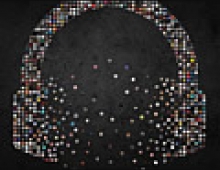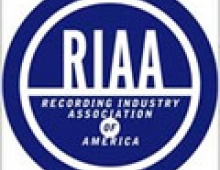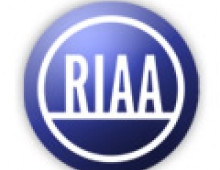
RIAA plans new lawsuits soon
Undaunted by a court decision making it more difficult to file lawsuits against Internet users suspected of illegally downloading songs, the Recording Industry Association of America (RIAA) is vowing to file more lawsuits "in the near future."
Although the RIAA will have to go to greater and more expensive lengths to target suspected violators, an association spokesman said Monday that the RIAA will go ahead with new lawsuits. What it can't do in the wake of a decision by the U. S. Court of Appeals for the District of Columbia is force internet service providers -- like Verizon -- to reveal the identity of any of its subscribers the RIAA is suspicious of.
While the Court was sympathetic to the RIAA's attempts to protect its members -- recording artists and companies primarily -- it ruled that attempts by the RIAA to subpoena records from Verizon was an unlawful invasion of privacy.
In its ruling, the Court seemed to invite RIAA to go back to Congress and seek a revision of the 1998 Digital Millennium Copyright Act (DMCA), which the RIAA used to hit more than 300 consumers with subpoenas to investigate alleged file swapping. The DMCA was approved by Congress before online file-swapping of music was contemplated.
The RIAA spokesman said the association had made no decision on whether to appeal the Court of Appeals decision or to revisit Congress for more protective legislation.
In its decision, the Court of Appeals said: "It is not the province of the courts, however, to rewrite the DMCA in order to make it fit a new and unforeseen Internet architecture, no matter how damaging that development has been to the music industry or threatens being to the motion picture and software industries. The plight of copyright holders must be addressed in the first instance by the Congress."
The judges reversed an earlier decision by a federal court judge, who said Verizon must turn over the identities of its customers the RIAA suspected of engaging in illegal music-swapping. The Appeals Court said: "had the Congress been aware of P2P technology, or anticipated its development," then it might have drafted the DMCA more generally to cover P2P.
Cary Sherman, RIAA president, said the court's decision was "disappointing... but it only changes the process by which we will file lawsuits." The new procedure means the RIAA will have to file against Internet users whose identity will be revealed after laborious legal procedures.
The decision was hailed by Verizon and by Kazaa, leading P2P provider. Verizon's vice president and associate general counsel said: "This decision removes the threat of a radical, new subpoena process that empowers copyright holders or anyone merely claiming to be a copyright holder to obtain personal information about Internet users by simply filing a one-page form with a court clerk...Copyright holders seeking personal information about Internet subscribers will now have to file a traditional lawsuit."
And, Sharman Networks, which represents file-swapping Kazaa, hailed the decision saying the entertainment industry "has lost its way, choosing a path of endless litigation against its own customers." In a statement, Sharman urged the entertainment industry to adopt peer-to-peer technology to distribute content.
While the Court was sympathetic to the RIAA's attempts to protect its members -- recording artists and companies primarily -- it ruled that attempts by the RIAA to subpoena records from Verizon was an unlawful invasion of privacy.
In its ruling, the Court seemed to invite RIAA to go back to Congress and seek a revision of the 1998 Digital Millennium Copyright Act (DMCA), which the RIAA used to hit more than 300 consumers with subpoenas to investigate alleged file swapping. The DMCA was approved by Congress before online file-swapping of music was contemplated.
The RIAA spokesman said the association had made no decision on whether to appeal the Court of Appeals decision or to revisit Congress for more protective legislation.
In its decision, the Court of Appeals said: "It is not the province of the courts, however, to rewrite the DMCA in order to make it fit a new and unforeseen Internet architecture, no matter how damaging that development has been to the music industry or threatens being to the motion picture and software industries. The plight of copyright holders must be addressed in the first instance by the Congress."
The judges reversed an earlier decision by a federal court judge, who said Verizon must turn over the identities of its customers the RIAA suspected of engaging in illegal music-swapping. The Appeals Court said: "had the Congress been aware of P2P technology, or anticipated its development," then it might have drafted the DMCA more generally to cover P2P.
Cary Sherman, RIAA president, said the court's decision was "disappointing... but it only changes the process by which we will file lawsuits." The new procedure means the RIAA will have to file against Internet users whose identity will be revealed after laborious legal procedures.
The decision was hailed by Verizon and by Kazaa, leading P2P provider. Verizon's vice president and associate general counsel said: "This decision removes the threat of a radical, new subpoena process that empowers copyright holders or anyone merely claiming to be a copyright holder to obtain personal information about Internet users by simply filing a one-page form with a court clerk...Copyright holders seeking personal information about Internet subscribers will now have to file a traditional lawsuit."
And, Sharman Networks, which represents file-swapping Kazaa, hailed the decision saying the entertainment industry "has lost its way, choosing a path of endless litigation against its own customers." In a statement, Sharman urged the entertainment industry to adopt peer-to-peer technology to distribute content.




















